NATO Secretary General Mark Rutte has called for a significant boost in defence industrial production and improved standardisation across the alliance to meet the growing security challenges posed by Russia and other global threats.
Speaking at a pre-ministerial press conference ahead of the NATO Defence Ministers meeting in Brussels, Rutte spoke to reporters of the urgency of increasing NATO’s defence capabilities and cutting costs to ensure the alliance remains prepared for future challenges.
Rutte highlighted that although progress has been made in defence production over the past two years, it is still not enough to meet NATO’s ambitious goals. “We are still not producing enough, and the costs remain too high,” Rutte told reporters. He explained that NATO needs “more forces, capabilities, and investment” to meet its defence targets and called on Allies to scale up their production capabilities while reducing costs.
Boosting Defence Industrial Capacity
Rutte stressed that boosting defence production is essential to equipping NATO with the necessary military assets, such as munitions, ships, combat vehicles, and jets. To achieve this, he urged NATO Allies to increase their defence spending and commit to long-term, firm orders that will encourage defence companies to expand production.
“There cannot be strong defence without strong defence industry,” he stated. Rutte has been actively engaging with both Allies and major defence industry players to find the best ways to ramp up production and reduce procurement costs, which remain a significant challenge for the alliance.
The Secretary General also underscored the importance of improving the interoperability of NATO forces through a new standardisation initiative. He explained that NATO would be introducing measures to improve the implementation of defence standards across the alliance, which could help reduce costs and improve cooperation between member states.
“Standards underpin our ability to fight together,” Rutte said, adding that “better implementation of standards can help reduce the costs of defence procurement.”
He acknowledged that this is not an easy task, but stressed that Allies increasingly understand the urgency of the matter.
Concerns about Russian influence in the Western Balkans
Rutte’s comments also touched on NATO’s ongoing efforts to counter Russian influence in the Western Balkans. He expressed concern over Russia’s attempts to destabilise the region through cyber and hybrid threats, particularly in Bosnia and Herzegovina and Kosovo. The Secretary General noted that Russia is exploiting internal divisions to undermine democracies in the region and create instability.
“Russia is seeking to undermine democracies in the region with cyber and hybrid threats, including disinformation, using internal vulnerabilities to sow divisions,” he warned.
Rutte reaffirmed NATO’s commitment to maintaining stability in the Balkans, particularly through the KFOR mission in Kosovo, which has helped maintain a safe environment and freedom of movement for over two decades. He also welcomed efforts by the European Union, particularly Germany, to support the Western Balkans and bring the region closer to the EU and NATO.
Strengthening NATO’s global capabilities
With the growing alignment of authoritarian actors like Russia, China, North Korea, and Iran, Rutte spoke of the need for NATO to tackle shared security challenges alongside global partners, such as the European Union and Indo-Pacific countries.
The upcoming ministerial discussions will focus on how NATO can increase cooperation on innovation, defence production, and cyber defence with its global partners to better address these interconnected threats.
Rutte’s message to Allies was clear: NATO needs to move faster and more decisively in scaling up defence production and ensuring that the alliance is ready to defend its one billion citizens against emerging threats from Russia and beyond.


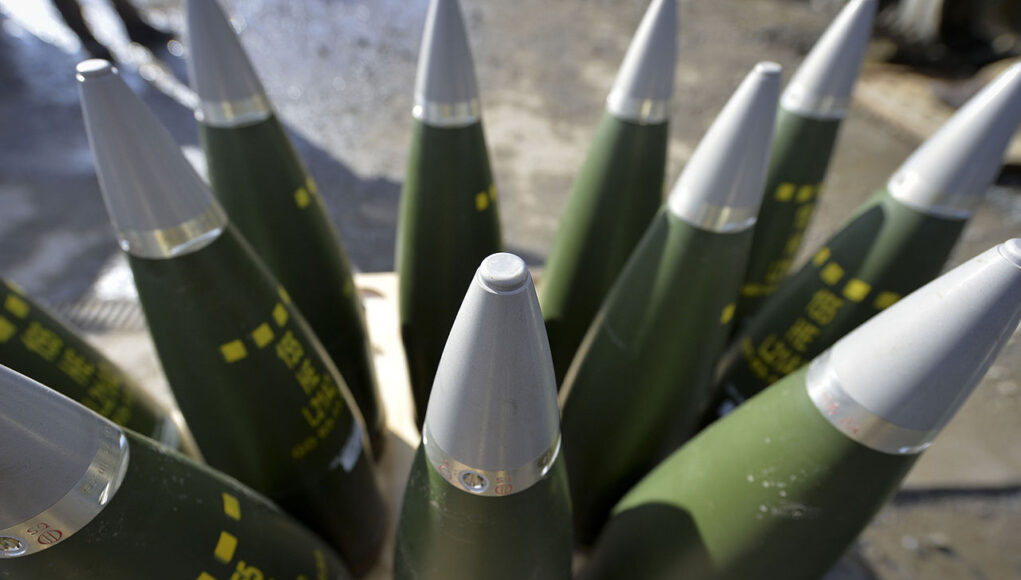

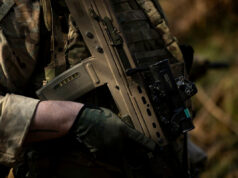
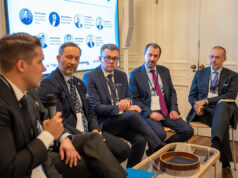
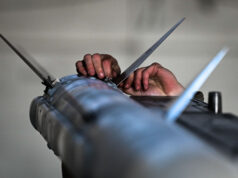


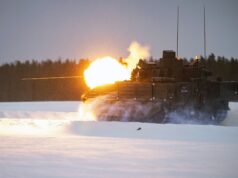
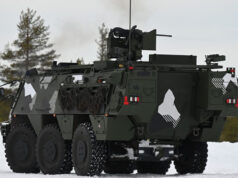

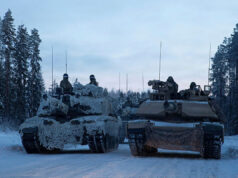

Well it would be a good start if defence contractors invested all their new found funds in building out production lines instead of stock buyback..
The only reason for building production lines is there is reason to believe orders will be forthcoming. NATO seems to be suggesting “let’s order a load of kit”. Good news all round I would have said especially as Russia seems obsessed with wasting all it’s kit in Ukraine to no advantage.
Yes. Cautionary tale….Vickers Defence Systems built two state of the art ‘tank factories’ in Leeds and Newcastle in the 80s – and the orders for new vehicles and upgrades did not justify the expenditure. The BAES factories closed in 2004 and 2015 respectively.
What ‘new found funds’?
As of August 2024, BAE Rheinmetall and Saab are expected to see combined cashflow jump by more than 40%. % of the top US contractors are forecast to generate double the 2021 amount of cash flow by 2026. Order books are at record highs. Last year was the strongest for share buybacks by aerospace and defence companies for tha past 5 years. Some comapnies took out debt to do buybacks in advance. BAE is buying 3 billion pounds in stock.
https://on.ft.com/3YcAfje
That is the nature of big business. In the bad times the companies sell off shares to people & businesses speculating on profits in the good times when the companies will be happy to buy back the shares.
If the companies weren’t doing it then tax payers would have to and then you see some serious moaning. You can’t have it both ways – investors cannot take risks unless they benefit ultimately otherwise they will not (cannot) plow money in next time.
I think there is a balance to be struck. As per the attached article US lawmakers have specifically raised concerns that the money from a surge in orders, taxpayer money, is generally not being used to increase production or build out manufacturing capacity. Specifically called out is the billion is Ukrainian, Taiwanese and Israeli aid the Senate has passed, these orders are just getting stuck on the backlog + buybacks commencing without investment in production. There has to be investment from the companies otherwise the taxpayer has to separately pay for the factory to be build, then for the units, and the buybacks.
Clearly the defence industry works in an unusual way. Clients (Governments) do assist companies when building infrastructure mainly because the Government is either the sole client or controls the purchase of the kit. This can mean it is not economic to build facilities unless they have sufficient orders. If the Government hands over money it is normally for a specific purpose ie. Build kit or infrastructure. This they will still have to do.
Just because law-makers raise concerns does not mean the concerns are valid and/or likely to be acted upon. There will be many business people there telling them this is normal.
Question is what to invest in building, the entire gulf war used about 3 days worth of supply of artillery shells in Ukraine. We will end up with vast production and surpluses of basic weapons like 155mm artillery shells that will never get used.
Maybe Jim, but look at how often a reasonable-sized conflict occurs. It’s only because of nuclear weapons there hasn’t been another major global war. Once nations resign themselves that the nuclear option is forever off the table, they will end up at war more often. History tells us that.
I am not saying I am in favour of war. Only those who never fought in one will be its most ardent advocate. It is they naturally come about more than most of us would like to admit. Until humans evolve past that point, we must forever be ready.
Yes I agree, but if we are going to invest large amounts of money it should probably be in things like cruise missiles that we will actually use rather than vast supplies of dumb ammunition that a proxy force can use.
NATO doesn’t have vast supplies of 155mm shells because that’s not how we fight wars.
If you look at production of smart munitions NATO outnumbers everyone else by several orders of magnitude.
You get through dumb ammunition in training and exercises, more so than cruise missiles, so with proper turnover management, you will use it up and it won’t be wasted ie go out of date without being used.
Indeed given the choice in 1918 I’m sure most people would have preferred an embarrassment of shells to the death and destruction of WW1.